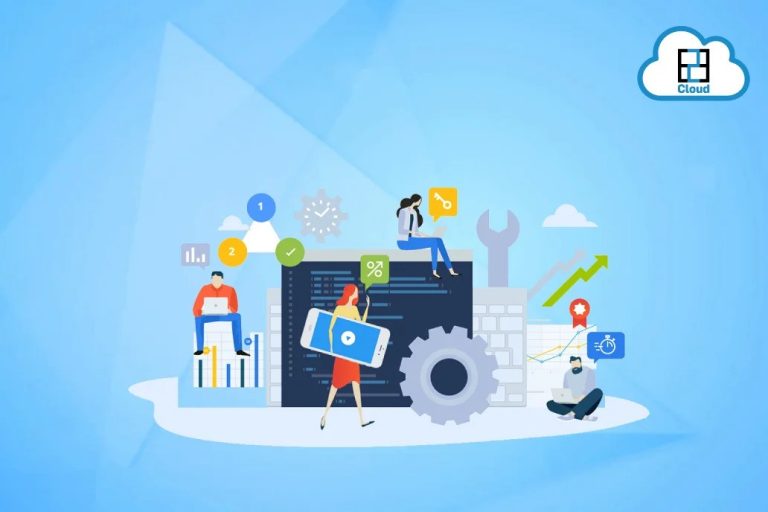Real-Life Applications of Machine Learning: Transforming Everyday Experiences
Imagine a world where technology gets smarter every time you use it – from predicting what you might want to buy next to helping doctors detect illnesses earlier. That’s the power of machine learning, a technology that allows machines to learn from experience, just like humans do. It’s already transforming everyday life in ways you might not even notice. In this post, we’ll explore how machine learning is making our daily tasks easier, safer, and more personalized, all while working behind the scenes.
- What is Machine Learning?
Machine learning is a technology that enables computers to analyze data, identify patterns, and make decisions based on those patterns – without the need for explicit programming. It’s a branch of artificial intelligence (AI) that empowers machines to improve their performance and predictions over time, allowing them to adapt and learn from experience.
- Real-Life Examples of Machine Learning in Action
Face ID on Smartphones
One of the most common and widely recognized applications of machine learning is the Face ID technology found in modern smartphones. This feature uses machine learning algorithms to recognize your facial features and unlock your phone.
Initially, the system learns from a database of images and patterns, improving over time as it collects more data about your unique face. As a result, Face ID not only provides a secure way to access your device but also becomes more accurate with each use, even adjusting to changes like aging or changes in hairstyle.
Personalized Recommendations in E-commerce
Machine learning has revolutionized the e-commerce industry by creating personalized shopping experiences. Websites like Amazon, eBay, and others leverage machine learning algorithms to analyze customer behavior—such as previous purchases, browsing history, and search patterns. These algorithms predict products that a shopper might be interested in and display tailored recommendations, enhancing the overall shopping experience.
Machine learning also powers dynamic pricing strategies, adjusting prices in real time based on demand, competition, and consumer behavior, thus optimizing both sales and customer satisfaction.
Content Suggestions
Streaming services like Netflix, Spotify, and YouTube have long used machine learning to personalize content for users. These platforms analyze vast amounts of data about users’ viewing and listening habits to predict what content they are most likely to enjoy next. Whether it’s recommending the next series to binge-watch on Netflix or suggesting a playlist of songs on Spotify, machine learning ensures that your entertainment choices align with your unique tastes and preferences, improving user engagement and satisfaction.
Virtual Assistants and Chatbots
Machine learning is at the core of virtual assistants like Apple’s Siri, Amazon’s Alexa, and Google Assistant, as well as AI-driven chatbots like ChatGPT. These tools are designed to assist with various tasks, from setting reminders to answering questions.
Machine learning enables these assistants to continuously improve their responses based on past interactions, understanding speech patterns and user preferences over time. For example, Siri learns to better understand your voice and commands, even with accents or background noise, becoming more accurate and useful with every interaction.
Speech Recognition Software
Speech recognition systems like Google’s voice transcription and voice-to-text features in smartphones rely heavily on machine learning. These tools analyze audio data to transcribe spoken words into text. As they are exposed to different accents, dialects, and vocal nuances, these systems improve their accuracy over time. For example, Google’s voice search not only recognizes speech patterns but also understands context, enabling it to offer more relevant and precise search results.
Email Filtering and Automation
Machine learning has transformed the way we manage emails. Email platforms like Gmail use machine learning to filter spam and organize your inbox. By analyzing patterns in emails – such as sender information, subject lines, and the content of the messages – the system can accurately determine which messages are unwanted or irrelevant.
As users interact with their inboxes, the system continuously learns and adapts, improving the accuracy of the spam filter over time. Similarly, email automation tools use machine learning to categorize and prioritize messages, enhancing productivity and user experience.
Predictive Analytics in Healthcare
In the healthcare sector, machine learning is helping doctors and medical professionals diagnose diseases more accurately and early. By analyzing patient data, including medical histories, test results, and even lifestyle habits, machine learning algorithms can identify early warning signs of conditions like cancer, diabetes, or heart disease.
Machine learning also supports the creation of personalized treatment plans by predicting how patients might respond to certain medications or therapies, ultimately improving patient outcomes and reducing medical errors.
c in Financial Services
The finance industry has leveraged machine learning for fraud detection and risk assessment. Financial institutions use machine learning algorithms to analyze transaction data and identify unusual patterns that may indicate fraudulent activities. These algorithms can quickly spot suspicious behavior, such as unauthorized account access or abnormal spending patterns, helping to prevent fraud before it occurs.
Additionally, machine learning is used in credit scoring, allowing banks to evaluate a customer’s risk level based on a wide range of financial factors, improving loan approvals and minimizing defaults.
- Conclusion
In conclusion, machine learning is revolutionizing industries and enhancing our daily lives by making processes smarter and more efficient. For businesses looking to thrive in this digital age, partnering with the right experts can help businesses leverage machine learning’s full potential.
With its extensive experience in AI-powered solutions, Sky Solution can help businesses unlock the full potential of machine learning, ensuring that they stay ahead of the curve. Whether you’re in e-commerce, healthcare, finance, or any other industry, partnering with a team that understands your needs and goals can make all the difference in successfully integrating AI into your operations.






